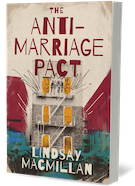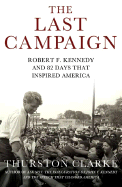Notes: Tasha Tudor Dies; Indie Bookstores Succeed
The Brattleboro Reformer reported that after her first story, Pumpkin Moonshine, was published in 1938, "she illustrated nearly 100 books, the most recent being The Corgiville Christmas, in 2003. She had received many awards and honors, including Caldecott Honors for Mother Goose and 1 is One. Many of her books are printed in foreign languages and distributed around the world." In today's New York Times, her obituary quotes a Times piece from 1941 that said her pictures "have the same fragile beauty of early spring evenings."
---
Contending that "there are throngs of traditional mom and pop shops making a fine living in the real world (as opposed to the virtual one)," Forbes magazine interviewed a few bricks-and-mortar retailers who exhibit the "courage, creativity and attention to detail" necessary to succeed.
Sarah Galvin, owner of the Bookstore Plus, Lake Placid, N.Y., "just celebrated 35 years in business and is still going strong." Asked how she survives against online and chain competitors, Galvin cited customer education, customer service and focusing extra hard on choosing the right inventory. "With only 2,400 square feet of floor space we have to make sure that every book that we stock deserves the space it takes up," she said. "Our staff regularly reviews every single book in the store."
---
Andi Allen, owner of Piece of Mind Books, Edwardsville, Ill., was profiled in the Collinsville Herald as an example of an independent bookseller battling "to keep afloat" in an increasingly competitive market.
"One of the things that we've recently added is a recycled books section," Allen said. "I was strictly new books until October. When the chain [bookstore] came in, I thought, 'Well what can we do that they won't do?' And I thought that's something that they won't do."
Allen praised her knowledgeable staff as a key to success: "What makes us strong is that we're very personalized," Allen said. "When you come in, you're talking to people that read books. The books that are on the shelf are books that I've selected. They're not just something that a computer has decided we should have."
---
Bookselling this Week reported on several booksellers "who are reaching out to other local independent businesses in their communities" by using the materials available in the IndieBound Literary Liberation Box.
"I hadn't expect it to be accepted by non-bookstores so easily," said Morley Horder of Eagle Harbor Book Company, Bainbridge Island, Wash., adding, "One thing I really want to do is get all the other trade associations, hardware associations for example, in on this so indies across the country are united by IndieBound. I think it's big enough and well thought out enough to make that happen."
Sarah Loftus of the Bookworm's Attic, Huntington, W. Va., said the IndieBound program "seems targeted toward a younger, hipper market, which fits with what I'm trying to do. It suggests that if you're looking for something more interesting, come to an indie store. And that's how I'm differentiating between the chains and us."
---
The University of Michigan Press will cease distributing independent publisher Pluto Press as of December 31. The Chronicle of Higher Education reported that the decision was prompted in part by controversy last year regarding one of Pluto's books, Overcoming Zionism by Joel Kovel, which "led the university to take the unusual step of drafting guidelines to govern its press's distribution and marketing agreements." Inside Higher Ed also offered perspective on the announcement.
---
Today's Wall Street Journal tracks the birth and nurturing of what just might be the next big fiction bestseller.
---
If the "thought of a dog-eared, mucus-smeared paperback is too much to bear," you may agree with the Guardian's fastidious book blogger Chas Newkey-Burden, who confessed to being "digestively squeamish about used books."
---
Owners and staff of independent bookstores in the five boroughs of New York City are invited to attend a second meeting about the formation of a citywide booksellers alliance. The agenda will focus on finalizing a name and forming committees to work on tasks that have been identified as priorities. The group encourages bookstores to send a representative to the meeting, which will take place next Thursday, June 26, 10:30 a.m.-12:30 p.m. at Random House (1745 Broadway, 14th Floor, Dr. Seuss Room). To be admitted to the building, anyone planning to attend must R.S.V.P. to shoplocal@bookculture.com.
Some 30 booksellers representing 20 independent bookstores in New York participated in the last meeting, which took place in May. The group estimates that there are more than 70 independently owned bookshops in the city.
---
In celebration of the 100th anniversary of L.M. Montgomery's classic Anne of Green Gables, the Association of American University Presses's Books for Understanding program offers a brief list of scholarly editions of the novel, biographies and papers, and critical appreciations of the role Montgomery's characters and places have played in literature, Canadian culture and world-wide popular memory.






SHELFAWARENESS.0213.S4.DIFFICULTTOPICSWEBINAR.gif)







SHELFAWARENESS.0213.T3.DIFFICULTTOPICSWEBINAR.gif)
 Jennie Shortridge's third novel, Love and Biology at the Center of the Universe (NAL, May 6), is the poignant and often funny story of a middle-aged woman's journey from "perfect" to better. Her second book, Eating Heaven (NAL 2005), was recently released in the U.K., Australia, New Zealand and Taiwan and remains on many book club bestseller and "favorites" lists. Shortridge lives with her husband in Seattle, where she is currently putting the finishing touches on her fourth novel. We interrupted her with a few questions:
Jennie Shortridge's third novel, Love and Biology at the Center of the Universe (NAL, May 6), is the poignant and often funny story of a middle-aged woman's journey from "perfect" to better. Her second book, Eating Heaven (NAL 2005), was recently released in the U.K., Australia, New Zealand and Taiwan and remains on many book club bestseller and "favorites" lists. Shortridge lives with her husband in Seattle, where she is currently putting the finishing touches on her fourth novel. We interrupted her with a few questions: In this all too brief hiatus between the end of the grueling Democratic primary campaign and the beginning of what promises to be a nasty general election fight, it's a good time to look back at the remarkable 1968 presidential campaign of Robert Kennedy that Thurston Clarke has brought to life in this vivid and energetic work of popular history.
In this all too brief hiatus between the end of the grueling Democratic primary campaign and the beginning of what promises to be a nasty general election fight, it's a good time to look back at the remarkable 1968 presidential campaign of Robert Kennedy that Thurston Clarke has brought to life in this vivid and energetic work of popular history.